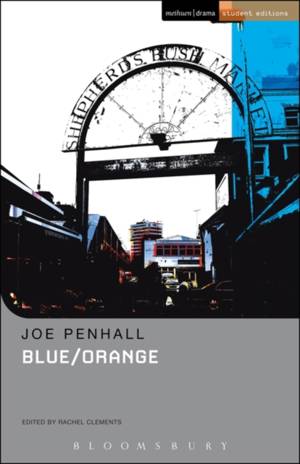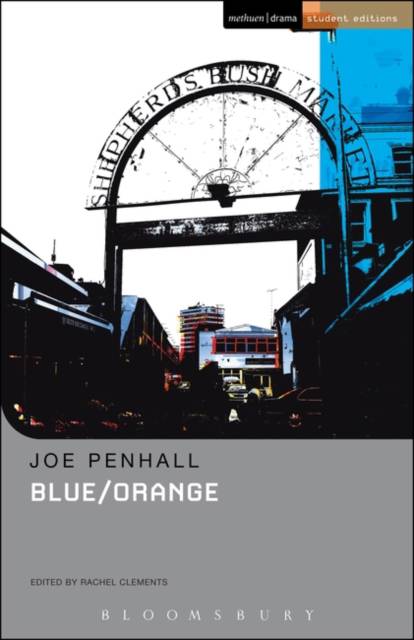
Bedankt voor het vertrouwen het afgelopen jaar! Om jou te bedanken bieden we GRATIS verzending (in België) aan op alles gedurende de hele maand januari.
- Afhalen na 1 uur in een winkel met voorraad
- In januari gratis thuislevering in België
- Ruim aanbod met 7 miljoen producten
Bedankt voor het vertrouwen het afgelopen jaar! Om jou te bedanken bieden we GRATIS verzending (in België) aan op alles gedurende de hele maand januari.
- Afhalen na 1 uur in een winkel met voorraad
- In januari gratis thuislevering in België
- Ruim aanbod met 7 miljoen producten
Zoeken
Omschrijving
In a London psychiatric hospital, an enigmatic patient claims to be the son of an African dictator - a story that becomes unnervingly plausible. An incendiary tale of race, madness and a Darwinian power struggle at the heart of a dying National Health Service, Blue/Orange premiered at London's Cottesloe Theatre in April 2000 and transferred to the West End in 2001.
Award-winning writer Joe Penhall first rose to prominence in 1994 with his Royal Court play Some Voices and he has been described by the Financial Times as 'one of the finest playwrights of his generation.' Blue/Orange is an accessible and vibrant play, which explores a number of important issues and which makes it a good choice to study. This includes themes of race and representation, sanity and insanity (and in particular the social structures, stigma and complexity surrounding schizophrenia), as well the political context of New Labour and spin, and questions of prejudice and difference.
This Student Edition features expert and helpful annotation, including a scene-by-scene summary, a detailed commentary on the dramatic, social and political context, and on the themes, characters, language and structure of the play, as well as a list of suggested reading and questions for further study and a review of performance history.
Award-winning writer Joe Penhall first rose to prominence in 1994 with his Royal Court play Some Voices and he has been described by the Financial Times as 'one of the finest playwrights of his generation.' Blue/Orange is an accessible and vibrant play, which explores a number of important issues and which makes it a good choice to study. This includes themes of race and representation, sanity and insanity (and in particular the social structures, stigma and complexity surrounding schizophrenia), as well the political context of New Labour and spin, and questions of prejudice and difference.
This Student Edition features expert and helpful annotation, including a scene-by-scene summary, a detailed commentary on the dramatic, social and political context, and on the themes, characters, language and structure of the play, as well as a list of suggested reading and questions for further study and a review of performance history.
Specificaties
Betrokkenen
- Auteur(s):
- Uitgeverij:
Inhoud
- Aantal bladzijden:
- 192
- Taal:
- Engels
- Reeks:
Eigenschappen
- Productcode (EAN):
- 9781408140918
- Verschijningsdatum:
- 15/02/2012
- Uitvoering:
- Paperback
- Formaat:
- Trade paperback (VS)
- Afmetingen:
- 127 mm x 196 mm
- Gewicht:
- 181 g

Alleen bij Standaard Boekhandel
+ 51 punten op je klantenkaart van Standaard Boekhandel
Beoordelingen
We publiceren alleen reviews die voldoen aan de voorwaarden voor reviews. Bekijk onze voorwaarden voor reviews.









